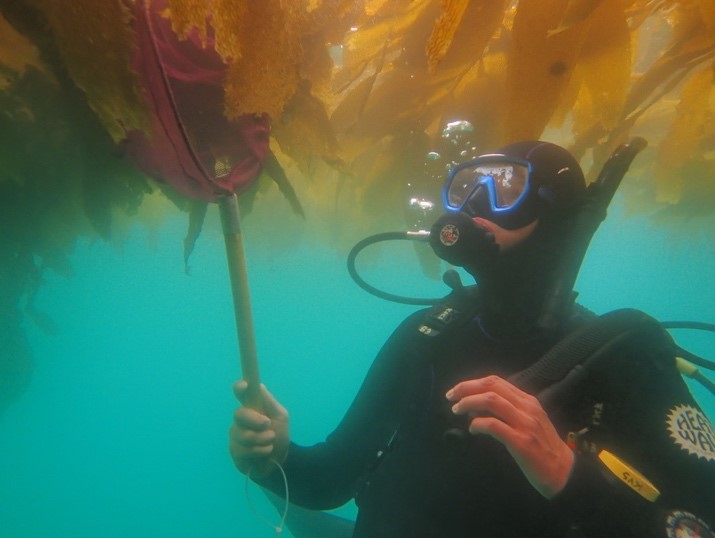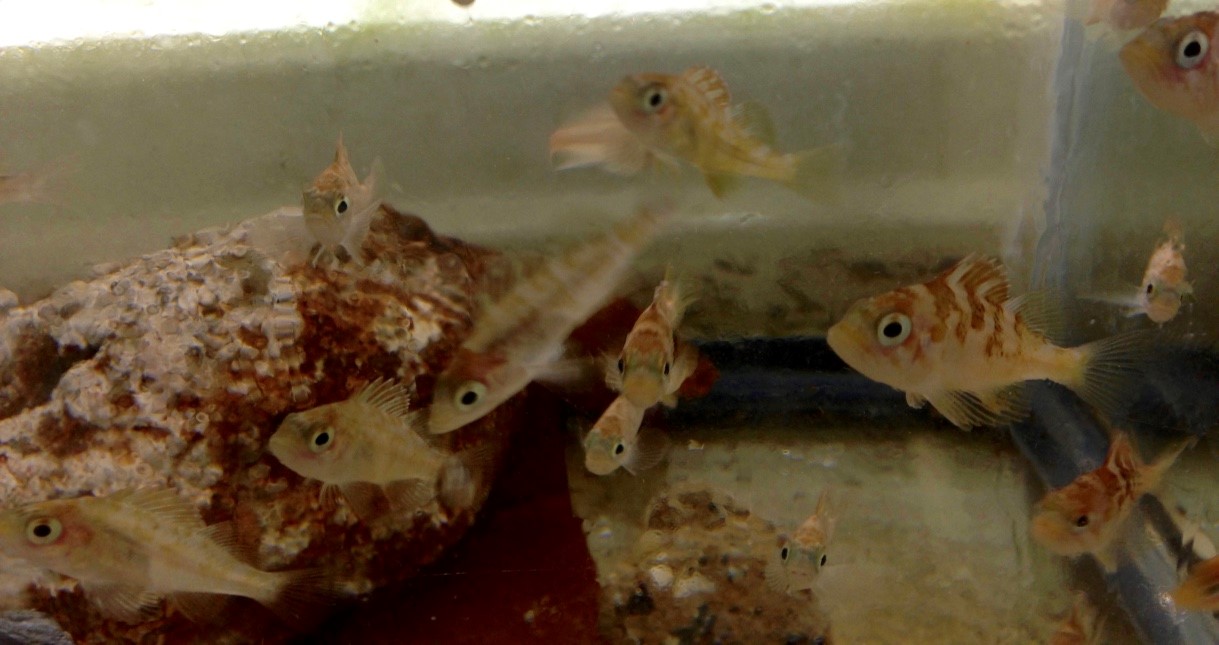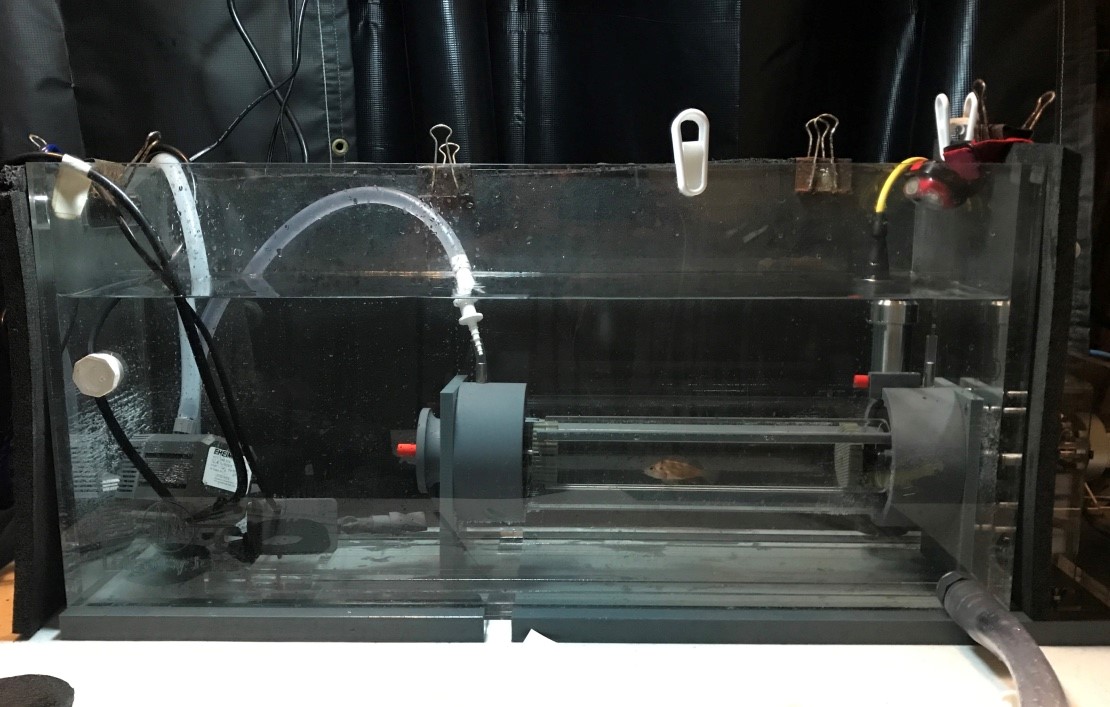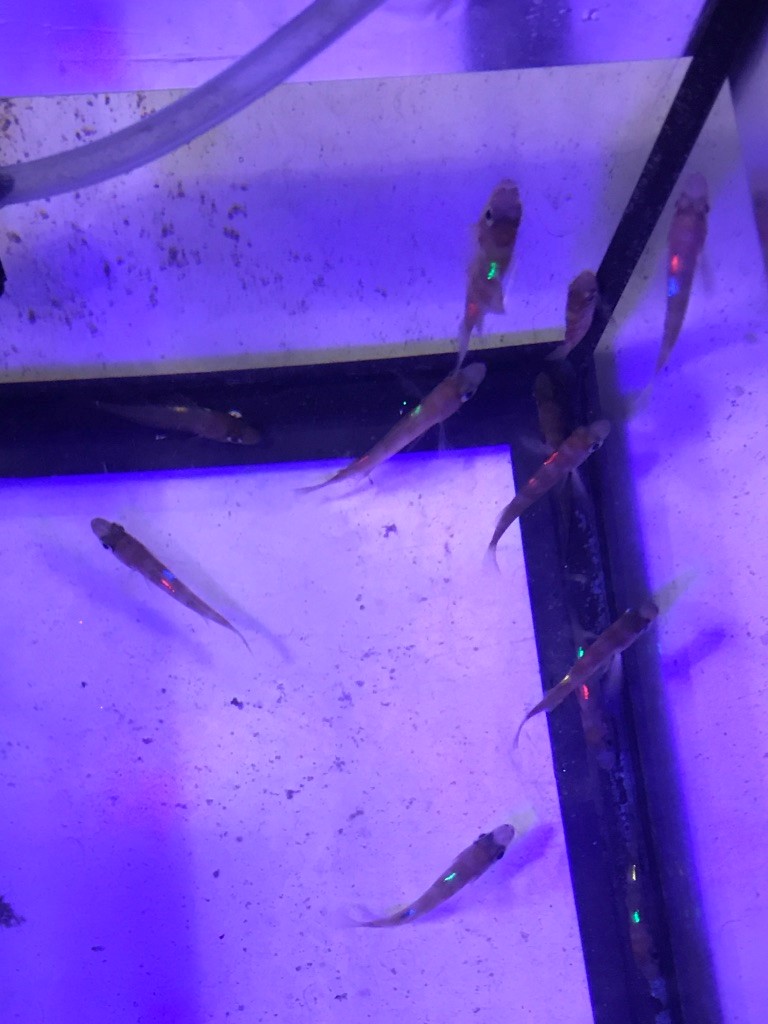"Assessing the effects of upwelling-driven pH and dissolved oxygen variability on juvenile rockfishes"
A Thesis Defense by Melissa Palmisciano
Zoom | December 8th, 2023 at 10 am PDT
Abstract
Global climate change is expected to increase the frequency and severity of upwelling events in the California Current Ecosystem, yielding concurrent reductions in pH and dissolved oxygen (DO) in coastal marine environments. Juvenile copper (Sebastes caurinus) and gopher (S. carnatus) rockfish may be particularly vulnerable to low pH and DO because they settle nearshore during the upwelling season. To determine how fluctuations in ocean chemistry impact rockfish behavioral and physiological performance at this critical life history stage, I exposed juveniles of both species to one of the following pH/DO treatments: periodic upwelling (a recurring cycle of 8 days of 7.3 pH, 2.0 mg/L DO, followed by 8 days of recovery at control conditions), extreme static (7.3 pH, 2.0 mg/L DO), moderate static (7.5 pH, 4.0 mg/L DO), or control static (8.0 pH, 8.3 mg/L DO). Responses to sublethal stress were evaluated through behavioral metrics including lateralization, escape time, and startle response, as well as physiological metrics including critical swimming speed (Ucrit), metabolic performance (standard and maximum metabolic rates, capacity for aerobic activity), hypoxia tolerance (critical oxygen tension [Pcrit]), growth rates, body condition, and mortality. I did not observe any significant effects of low pH/DO conditions on the behavioral metrics, but physiological performance generally decreased as pH/DO decreased. In the fluctuating treatment, both species were impaired under upwelling but often appeared to recover in the physiological metrics when returned to control seawater for 6-7 days (a simulated oceanographic relaxation event). Both species exhibited the lowest growth rate in the extreme low pH/DO treatment, followed by the fluctuating treatments and then the moderate treatment, suggesting that fluctuations had an overall negative effect compared to constant mean conditions. While juvenile rockfish are susceptible to physiological impairment under extreme climate change scenarios, the severity and duration of future hypoxic, acidic events will ultimately set the consequences for survivorship and physiological fitness, influencing the outcome of the population replenishment process and the long-term sustainability of economically and ecologically important nearshore rockfish species.
Bio
Melissa graduated from Brown University in 2013 with an Sc.B. in Environmental Science. As an undergraduate, Melissa studied spatial and temporal distributions of macroalgae blooms in relation to nutrient loading for her senior thesis. At Moss Landing, Melissa joined the Ichthyology Lab and was advised by Scott Hamilton, studying the effects of climate change stressors like hypoxia and ocean acidification on the behavior and physiology of juvenile rockfishes. She was also involved in a project looking at the effects of climate stressors on larval rockfishes. During her time at MLML, Melissa served as a leadership committee member for the Monterey Bay Chapter of the Society for Women in Marine Science. Melissa is now pursuing her PhD at Hopkins Marine Station exploring how ocean acidification impacts grazer-algal interactions and community structure in the Mediterranean. In her free time Melissa enjoys hiking, gardening, and traveling.






